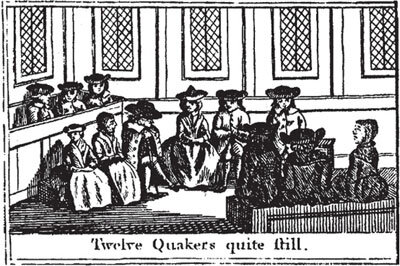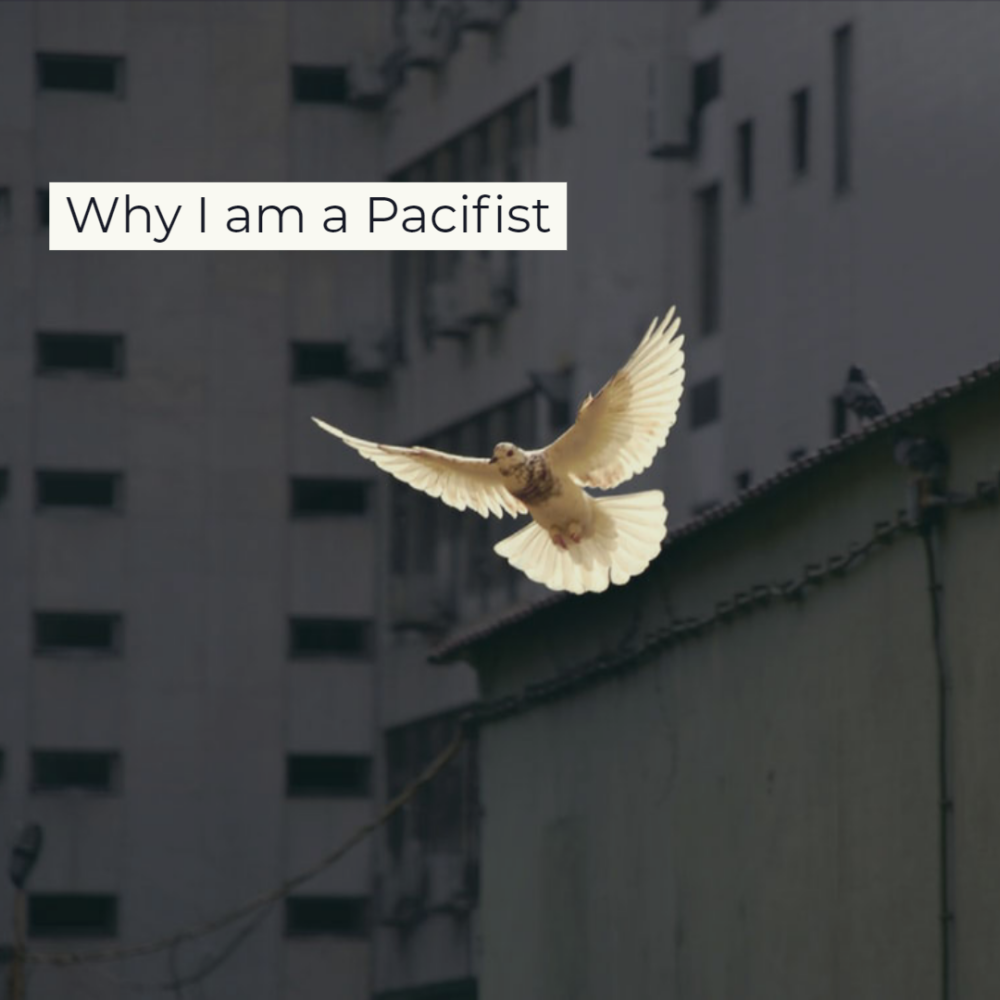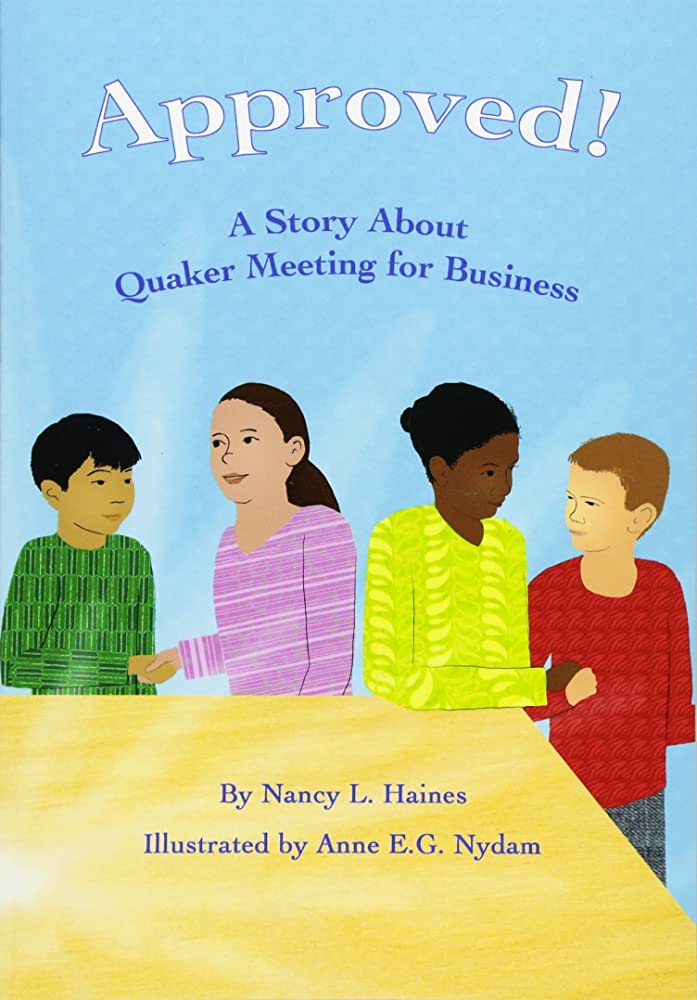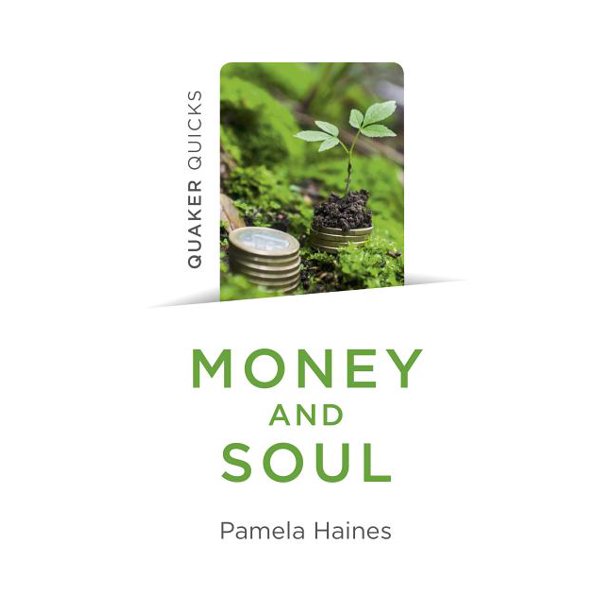- Quaker Affirmation Curriculum for Adults (new Nov. 2023) from Indianapolis First Friends
- Walking in the World as a Friend: Essential Quaker Practices by Nadine Hoover — follow how essential Quaker practices weave together the individual, Quaker community and Spirit, creating a unique, vital and transformative dynamic. The 15 short videos are great discussion starters. You can purchase the book here or at the FGC Bookstore.
- Quakerism 101: A Very Basic Introduction with Suggested Readings – an excellent collection of resources for adults and older youth to explore. curated by C. Wess Daniels
- Spiritual Deepening Library – from Friends General Conference
- Quaker Basics: An Introductory Course in Quaker Faith & Practice
- Deepening Meeting Life
- Revolutionary Roots of Quakerism: a 6-session journey with early Friends
Books
Why I am a Pacifist
If the pilgrim’s path is never easy, how does the pacifist fare? Tim Gee is a respected UK human rights activist and author of Counterpower: Making Change Happen (2011) and You Can’t Evict an Idea (2013). In this new book, a personal reflection of how he defines and interacts with the world as a pacifist, Gee continues his interrogation of strategies to win meaningful change without violence. Introductory remarks offer readers a short rudimentary history of the Religious Society of Friends and the principles for which it is known internationally.
In the first chapter the author evaluates his not-always-successful attempts to disengage himself from acts of physical and verbal violence during his early school years where teasing, forms of bullying, and peer pressure were present. Gee’s didactic tale invites readers to reflect on how they themselves might have reacted to similar school-day contests and the influence those formative years exerted later on their spiritual path toward pacifism. With respect to Quaker testimonies about peace, the labors of Margaret Fell, George Fox, and Sylvia Pankhurst are assayed, as are the Lamb’s War project and the stance of Martin Luther King Jr. and Bayard Rustin.
Gee argues that each one of us has a role in developing circumstances where peace can flourish.
Culture shapes language, which in turn shapes the way we think and the decisions we make. That we speak of ‘nonviolence’ reveals that within our culture, violence is the norm. We do not refer to war as ‘nonpeace’ . . . A commitment to peace encompasses a commitment to equality, economic justice and environmental protection.
While acknowledging that Quaker pacifism is rooted in spirituality, Gee contends that pacifism and the trials of the pacifist are misunderstood, i.e. pacifism is not a repudiation of conflict.
Subsequent chapters take up the evils of war and the many pathways to peace. To support his thesis that pacifism is active (not passive) work and that pacifists are earnestly engaged in challenging the prevailing stereotypes about pacifism, Gee draws on a variety of sources to demonstrate the effectiveness of nonviolent approaches to (re)solve world problems. In chapter 3, “Thou shalt not kill,” Gee debunks the “Just War Theory” that Thomas Aquinas updated and popularized in the thirteenth century and which is still invoked today. Since “a just war . . . implies God’s blessing,” Quakers seek the inner light and ponder what would Jesus do. Nonviolence, as reflected in the exemplary people power campaigns of Gandhi, Cesar Chavez, and Greenpeace, functions best when—through a structural critique—it devises a viable alternative to war and racial injustice: “To the extent that the use of nonviolent strategy did not result in everything the movement worked for, violent tactics did not achieve those objectives either.”
Even climate change, whose global effects are not distributed equally, signals “an intensification of the violence of inequality.” To his credit, Gee cites how nonviolent movements and Quakerism have been harmed by misogyny and a disregard for gender equality. While he does not equate pacifism with socialism, Gee asks us to consider that the mostly leftist leanings of pacifists do not translate into the left being singularly pacifist. The case of Quaker activist Nozizwe Madlala-Routledge’s membership in the African National Congress and South African Communist Party is illustrative of the political elasticity of pacifists who “can participate in movements that have both nonviolent and armed components.”
Following musings on genocidal crimes and the success rate of civil resistance worldwide, Gee serves up anecdotes (“But what would you do if . . .?”) about nonviolent stands that ordinary citizens (not necessarily declared pacifists) have taken victoriously to thwart acts of violence directed toward them. Gee concludes that the presence of God within directs his testimony and, through practice, paves the path for peace within us all. Pacifism, as a moral doctrine, and the principles that frame it are, for Gee, part and parcel of his non-negotiable spiritual journey.
Faithful Always
Faithful Always is a book about the process of endings for Quaker meetings and churches. The book is written by a group of Quakers who have experience with endings, and it offers insights and advice on how to approach this difficult time.
The book begins by exploring the different types of endings that Quaker meetings and churches can experience. These include physical endings, such as the closing of a meetinghouse, as well as spiritual endings, such as the loss of a sense of purpose or direction. The book then goes on to discuss the different stages of the ending process, from denial to acceptance.
The book also offers practical advice on how to cope with endings. This includes tips on how to communicate with members of the meeting or church, how to make decisions about the future, and how to find closure.
Here are some of the pros and cons of the book:
Pros:
- Well-written and informative
- Offers practical advice on how to cope with endings
- Written by a group of Quakers who have experience with endings
Cons:
- Some of the advice may be specific to Quakerism
- The book may be too long for some readers
Overall, Faithful Always is a helpful resource for Quakers who are facing the end of a meeting or church. The book is well-written and informative, and it offers practical advice on how to cope with this difficult time.
https://quakeremily.files.wordpress.com/2022/11/faithful-always-for-publication.pdf
Nice White Parents
“Nice White Parents” is a compelling and thought-provoking podcast series that delves into the complexities of race, education, and privilege in America. Hosted by Chana Joffe-Walt, the series follows the story of a Brooklyn public school and the struggles it faces to provide a quality education to its diverse student body. [Read more…] about Nice White Parents
Approved! A Story about Quaker Meeting for Business
Recommended for Grades 4-6, ages 8-12
How can children work cooperatively to make decisions? Approved! A Story About Quaker Meeting for Business tells of a group of children who want to donate the money they earned selling hot dogs at their Quaker meeting. The story uses simple, clear language and charming artwork to introduce Quaker decision-making and includes additional tools for Quaker meetings, schools, and camps to help children learn the basics of Quaker process including queries, a glossary, and a brief overview of junior meeting for business.
Quaker Quicks – Money and Soul
If money troubles your soul, try this down-to-earth Quaker perspective on economies large and small.
The economy, as we usually encounter it, has nothing to do with values or faith. After all, the “invisible hand” caters to no religious belief. It is all a matter of science, we are assured: economists have mastered the mathematical formulas for growth and prosperity. Our role as individuals is simply to work, consume and save, each adding our bit to the sum totals of economic activity that will keep the system humming along; the experts will take care of everything else. [Read more…] about Quaker Quicks – Money and Soul





